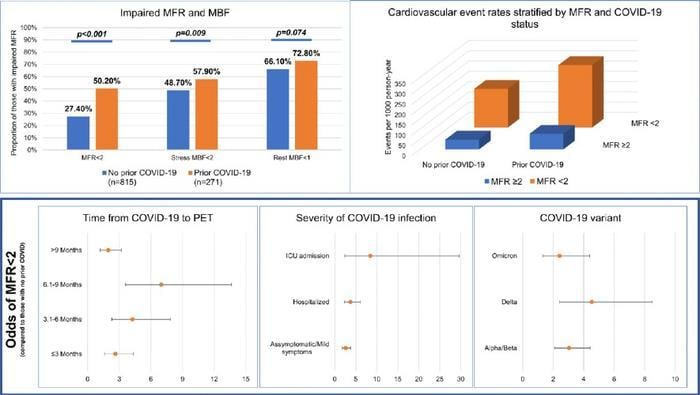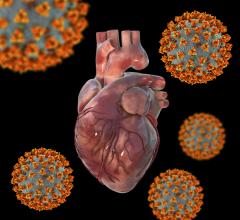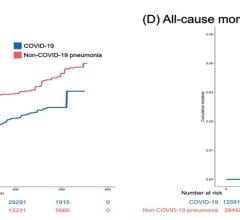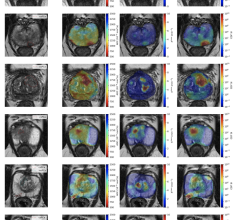
Patients with prior COVID have higher rates of impaired MFR indicating cardiovascular disease. Variant and severity of infection influence the rates of impaired MFR. Data also suggests impaired MFR could be reversible. Graphic courtesy of Houston Methodist
June 9, 2023 — Patients infected with beta and delta COVID-19 variants, and those who required hospital stays for COVID-19 infection, were more likely to experience heart issues associated with long COVID, according to a recent Houston Methodist study published in the European Heart Journal – Cardiovascular Imaging. Patients recovering from the omicron variant were least likely to have microvascular involvement.
“This new data expands our understanding of myocardial flow reserve as an important prognostic marker in general and specifically in COVID-19,” said Mouaz Al-Mallah, M.D., corresponding author of the study and director of cardiovascular PET at Houston Methodist DeBakey Heart and Vascular Center.
“This is good news for individuals who had omicron and are concerned about long COVID. Patients with lingering symptoms such as chest pain or shortness of breath following a severe infection may want to have a PET scan with blood flow assessment to check for microvascular dysfunction,” said Al-Mallah, who is also the current president of the American Society of Nuclear Cardiology. The study also found that microvascular dysfunction started to be seen less often after nine months to one year following infection suggesting that this type of abnormality may be reversible.
The American Society for Nuclear Cardiology’s PET scan guidelines now recommend including blood flow assessment routinely.
Last year, Al-Mallah and team published an initial study in JACC: Cardiovascular Imaging examining the coronary microvasculature health of 393 patients, including 101 with prior COVID-19 infection who had lingering symptoms. This was the first published study linking reduced blood flow reserve in the heart and COVID-19.
With over 600 million confirmed cases and nearly seven million deaths, the COVID-19 pandemic has left a lasting mark on the world. While the World Health Organization (WHO) ended the global health emergency declaration in May, long COVID remains largely a mystery.
According to Al-Mallah, more studies are needed to further assess the microvascular health of patients with prior COVID-19 and identify how these findings could influence patient care in the context of long-haul COVID-19.
Additional collaborators on this study include Ahmed Ibrahim Ahmed, Mahmoud Al Rifai, Fares Alahdab, Jean Michel Saad, Yushui Han, Moath Said Alfawara, Malek Nayfeh, Maan Malahfji, Faisal Nabi, John J Mahmarian, John P. Cook, and William A Zoghbi.
This work was supported, in part, by grants from the National Institutes of Health (R01 HL133254; R01 HL148338; and R01 HL157790).
For more information: houstonmethodist.org
Related Long-COVID Coverage:
ACC23 Study Finds Long COVID More Than Doubles Risk of Developing New Cardiac Symptoms
ACC Scientific Session 2023 to Feature Smidt Heart Institute Experts
MRI Sheds Light on COVID Vaccine-Associated Heart Muscle Injury
What We Know About Cardiac Long-COVID Two Years Into the Pandemic
VIDEO: Long-term Cardiac Impacts of COVID-19 Two Years Into The Pandemic — Interview with Aaron Baggish, M.D.
VIDEO: Long-COVID Presentations in Cardiology at Beaumont Hospital — Interview with Justin Trivax, M.D.
VIDEO: Cardiac Presentations in COVID Long-haulers at Cedars-Sinai Hospital — Interview with Siddharth Singh, M.D.


 March 20, 2024
March 20, 2024 









